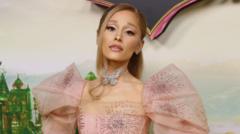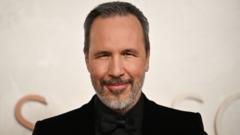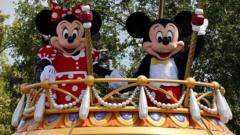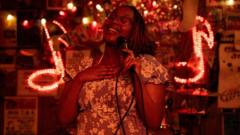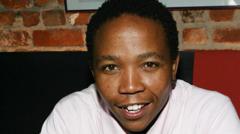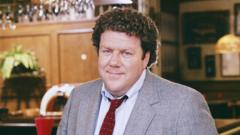With its portrayal of the papal conclave, "Conclave" illuminates the intricate blend of politics, divine influence, and human emotion that characterizes the selection of a new pope, reflecting on the upcoming election set to commence on May 7.
Unveiling the Secretive Papal Election: Insights from "Conclave"
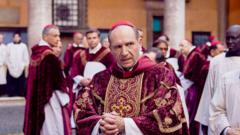
Unveiling the Secretive Papal Election: Insights from "Conclave"
The film "Conclave" explores the intricate and hidden dynamics of the papal election process, offering viewers a fascinating glimpse into the Vatican's world.
The 2024 film "Conclave" is not just a box office sensation but also an Oscar-winning narrative that delves deep into the cryptic process of electing a pope. Scheduled for May 7, the upcoming conclave will witness 134 cardinals sequestered in the iconic Sistine Chapel, beneath the famous Michelangelo frescoes, the world will wait for a signal—a plume of white smoke—to confirm the selection of a new leader of the Roman Catholic Church.
Inspired by Robert Harris's bestselling novel, "Conclave" captures the isolation of the cardinal-electors during this pivotal event. They are confined away from outside influences, maintaining a tradition that has persisted for centuries. Although nestled within the Vatican, these officials still require sustenance and connection to the outside world, though it's limited. Stephen Bullivant, a theology and sociology professor at St Mary's University, notes the isolation is both a safeguard against external influence and a stark contrast to society's current embrace of transparency and scrutiny.
The film crafts an atmosphere rich with tension and introspection, showcasing the weight of the cardinal's responsibilities in a manner that resonates with viewers. Anna Rowlands, a Catholic thought professor, reflects on this intensity, stating it's challenging to imagine a more profound weight than that faced during such a conclave.
As the drama unfolds on screen, the intense politicking among the cardinals reflects the real-world challenges they might face. According to Nick Emerson, the film editor, the narrative centers on the political maneuvering where each cardinal seeks to advance their standing amid competing ideologies. As Pope Francis's health had been in decline, the atmosphere leading up to the conclave may already be charged with political tension and anxiety as cardinals prepare to negotiate alliances and define priorities even before the official process commences.
Interestingly, "Conclave" introduces themes of unpredictability, particularly through a fictional character—a cardinal designated by the late pope—entering the selection fray. This scenario diverges from reality, where only cardinals previously appointed by the pope can participate in the election. Nevertheless, the upcoming conclave may yield surprises as 80% of the eligible cardinals were appointed by Pope Francis, a reflection of his inclusive vision that embraces diverse backgrounds.
As "Conclave" atmospheric draws viewers into an exploration of human frailty amidst spiritual obligation, it encapsulates universal themes of ambition, fear, and courage. Director Edward Berger emphasizes the film's aim to present papal electors as relatable individuals, revealing a more modern, human side to what is often viewed as an ancient ritual. According to Rowlands, the film serves as a potent reminder of the intertwining of human experience and divine purpose in the conclave's proceedings, shining a light on the very human nature of this significant event.



